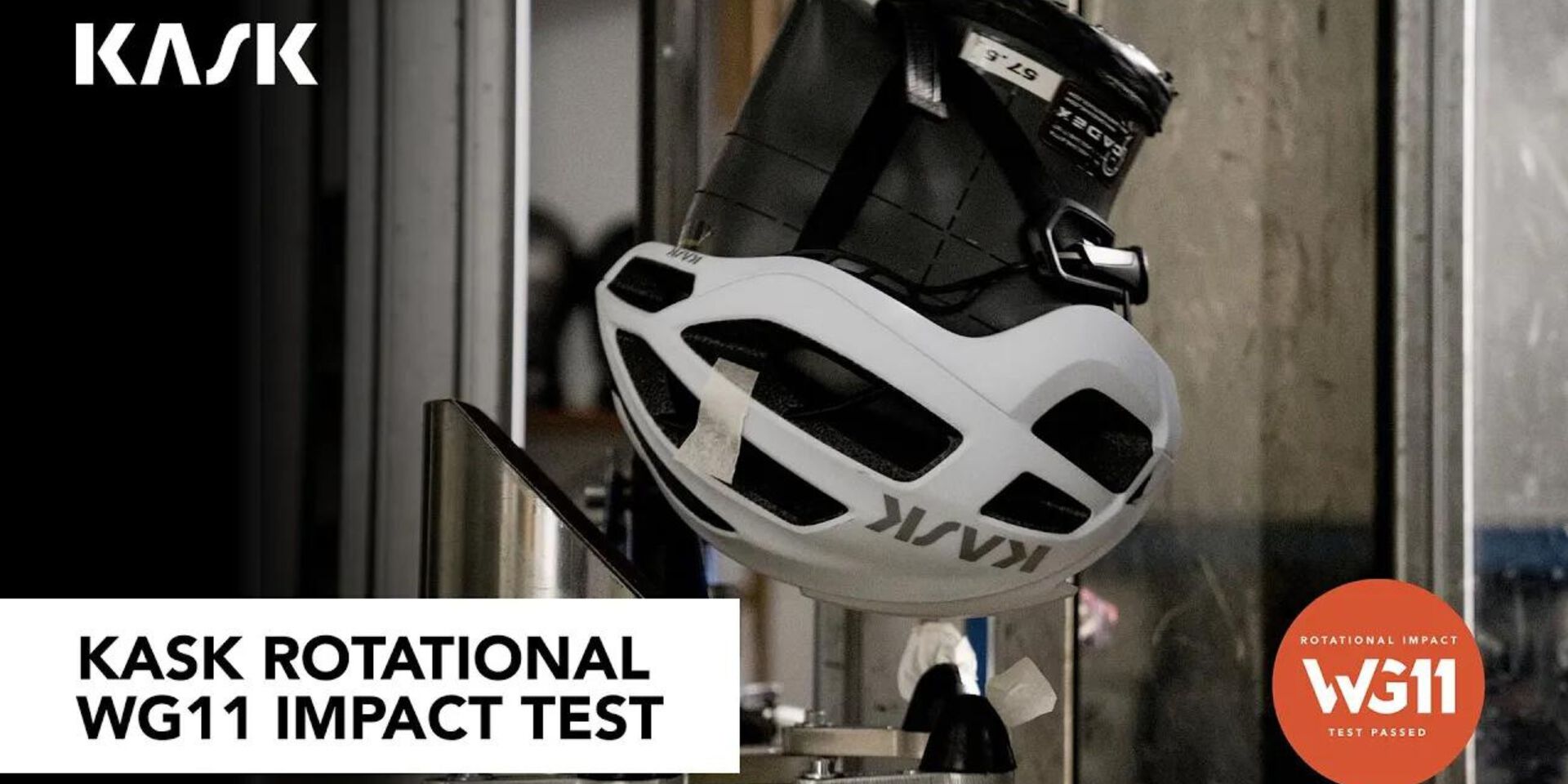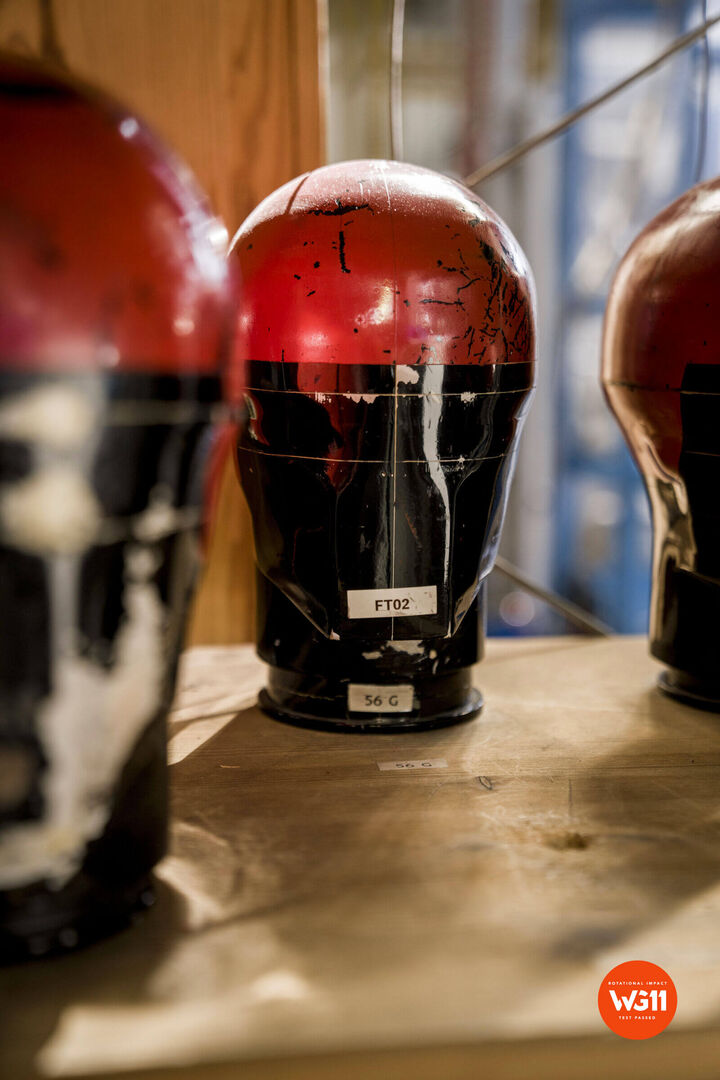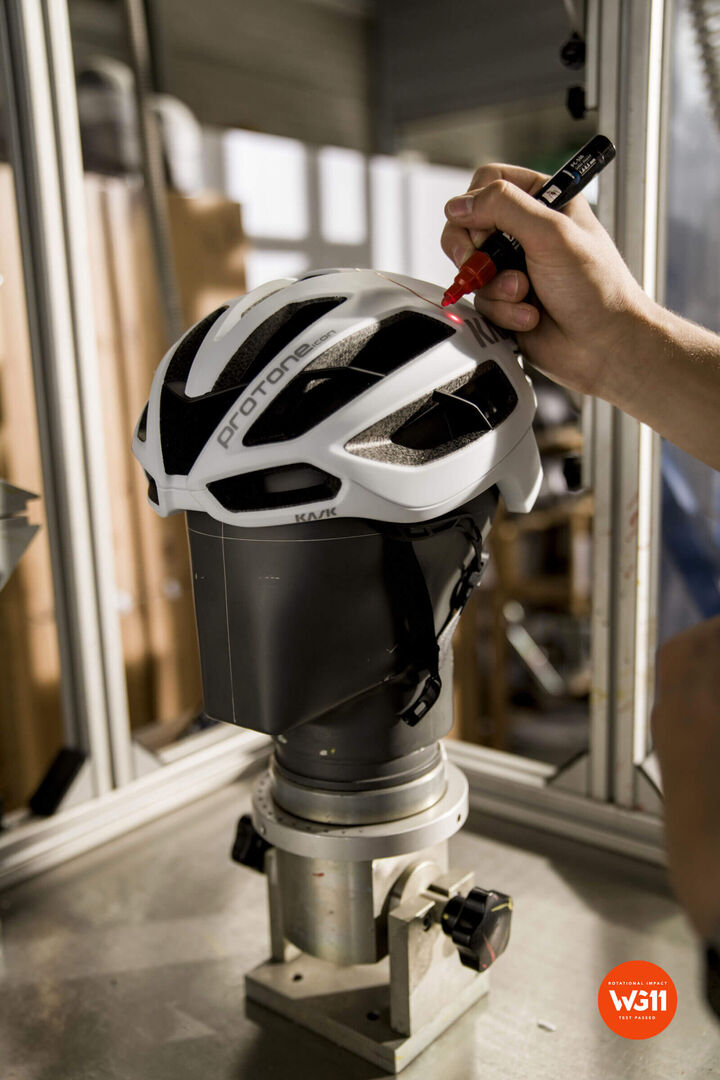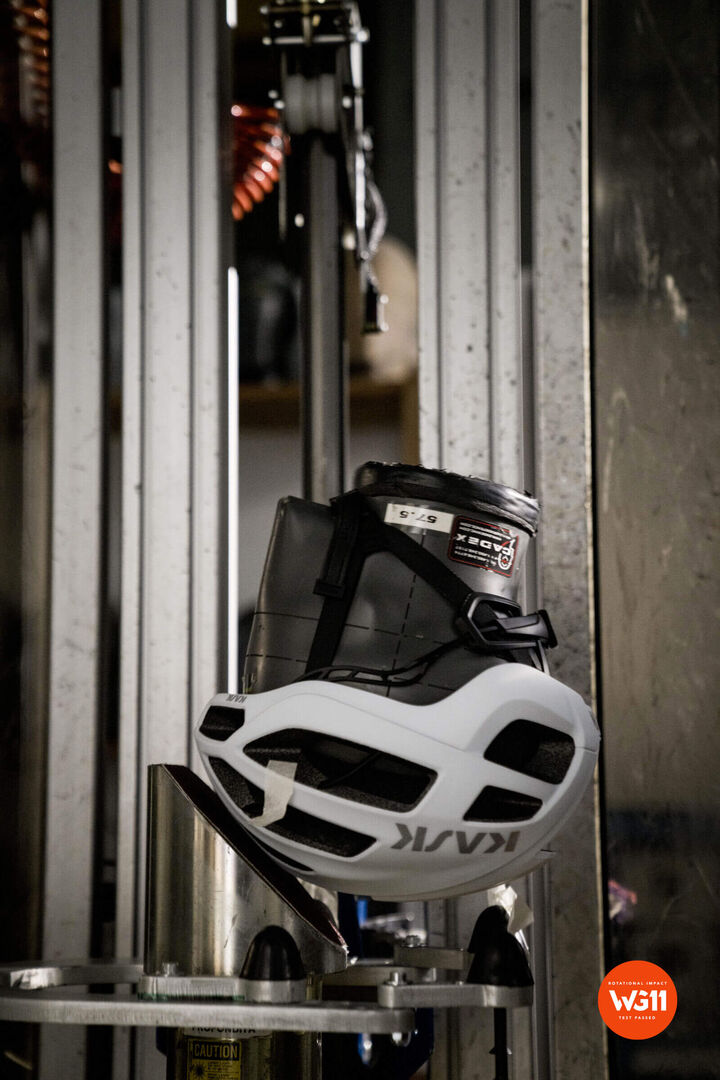
KASK ROTATIONAL IMPACT WG11 TEST
KASK created the Rotational Impact WG11 Test to provide safer helmets. An invisible layer of protection that far exceeds international norms. The independent lab tested safety protocol challenges the industry and surpasses the highest standards.
With our scientific background and intensive testing, we create head protection that outperforms even the most stringent test procedures with ease. We are committed to the highest safety standards for all your rides.

KASK has always been committed to creating products that provide both excellent safety and comfort, exceeding requirements set by international standards and norms.
KASK ROTATIONAL IMPACT WG11 TEST is an internal protocol adopted by KASK to identify an objective method, based on scientific sources, for measuring the performance of its helmets against rotational impacts.
Most helmets tests use rotational impact prevention technologies with headforms that have a higher coefficient of friction than those of the human skull and therefore may not reflect what occurs in some accidents.
The "pass-fail" criterion is based on the BrIC value, an algorithm that defines the level of brain injury.This value must be lower than 0,68.
The final test protocol is:
OBLIQUE IMPACT TESTs
oblique tests @ 45°, impact speed 6 m/s, BrIC < 0,68
+ grade 80 closed-coat aluminum oxide abrasive paper
+ headform nominal coefficient of friction 0,3
+ wireless system: triaxial accelerometer + n. 3 ARS
Headform: EN960 serie
Measurements:
Peak of rotational acceleration, Peak of linear acceleration, HIC, BRIC (< 0,68)
All KASK helmets successfully pass this test, with values that are substantially less than 0,68 BrIC 0,390
*ROTATIONAL IMPACT WG11 TEST PASSED is a KASK registered trademark. The ROTATIONAL IMPACT TEST PASSED is a KASK internal oblique impact test that measures the performance of its helmets against rotational impacts. This Test has not been adopted by CEN or its Working Group CEN TC158/Working Group 11.


